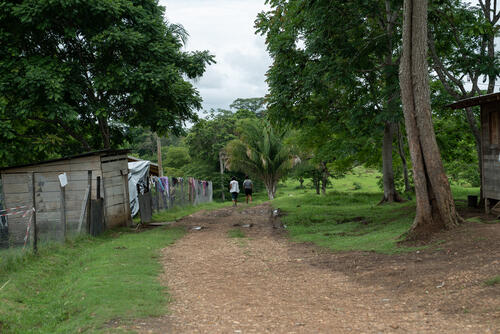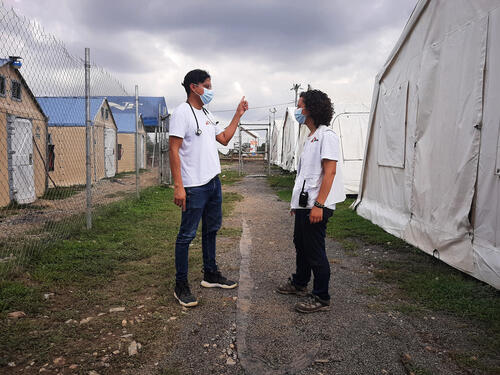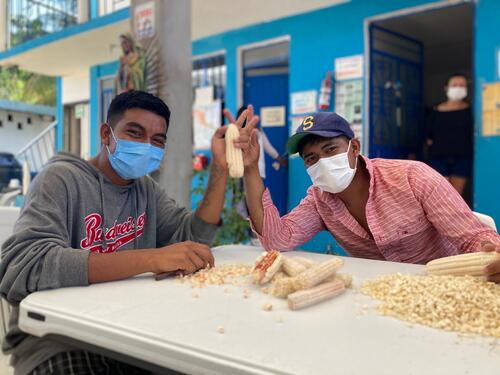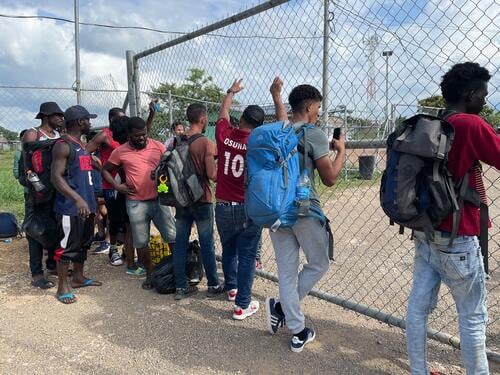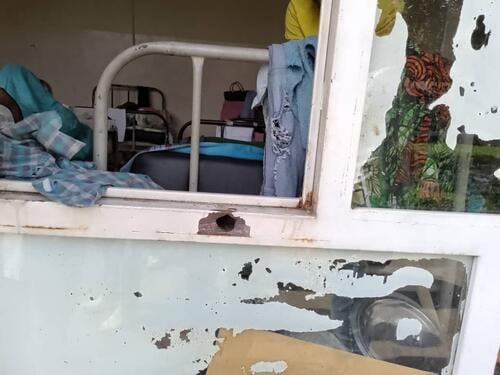Helmer Charris worked for Médecins Sans Frontières (MSF) in Panama from December 2021 to late March 2022. During this time, he observed changes in the flow of migrants crossing the Darién Gap, the jungle border that separates Panama from Colombia.
Beyond the difficulties of travelling through a tropical rainforest, migrants crossing the Darién Gap to reach Panama are frequently robbed and assaulted by violent criminal gangs. Often the gangs target women by terrorising and raping them.
Helmer shares his account of providing care to migrants who recently crossed the Darién Gap.
In December, when I arrived in Panama, it was a different situation. After a record year, the number of people crossing the Darién Gap had dropped significantly. At Bajo Chiquito health centre, located in eastern Panama, we no longer had any patients.
As the numbers had been gradually declining since November, we decided to reduce the MSF team there.
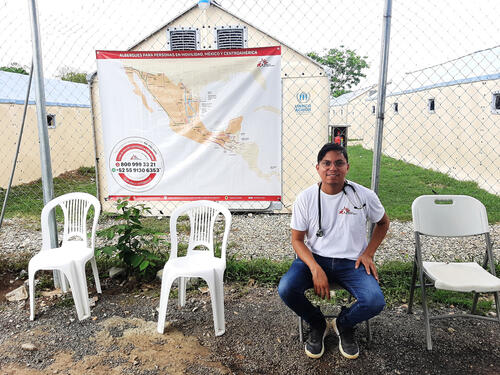
At the same time, the migratory route was changing and now, instead of arriving at the town of Bajo Chiquito in eastern Panama, people reach further north, to Canán Membrillo, which is a small community closer to the Darién jungle.
This new route to Canán Membrillo seemed to be safer; there were no reports of violent incidents and it is normally shorter by three days. This route is also not as tough compared to the route which led to Bajo Chiquito.
The route to Bajo Chiquito was really dangerous and involved negotiating mountains, precipices, cliffs and rivers that were prone to sudden floods. The dangers of that route had obvious consequences on the physical state of the migrants and on their medical needs, which were now reduced because they were going to Canán Membrillo instead.
But we began to question the relative safety of the route to Canán Membrillo in February. While our teams are still waiting to obtain the necessary authorization to work in Canán Membrillo, we are present at the migrant reception stations of Lajas Blancas and San Vicente.
Migrants come to these reception stations from Canán Membrillo, and they spend a couple of days at the stations before continuing north towards Costa Rica.
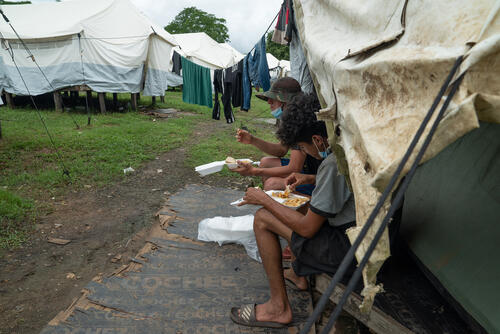
We began to see that the nationality of the migrants was changing compared to 2021. Before, Haitians made up the largest group, but now more than half are Venezuelans. Many of them had previously settled in Colombia or Peru and had been planning to make the journey north for some time.
There were a lot of families and that continues to be the case, although to a lesser extent. And we still have families from African countries like Cameroon, Democratic Republic of Congo and Senegal.
In February, people coming to the migrant reception stations started telling us that they had been in the jungle for a long time, and that they had been assaulted or had suffered extremely brutal sexual violence.
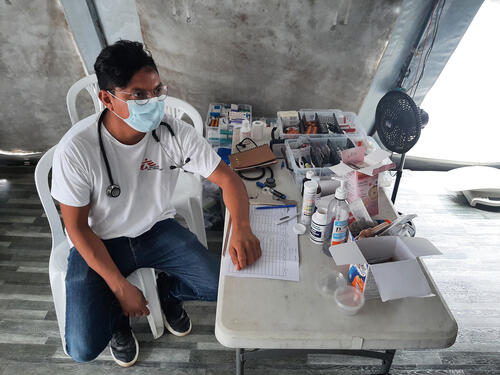
We saw a difference in the type of sexual assault women experienced based on their nationality. While the Haitian and African women reported to us that they had been raped, Venezuelan women were saying they’d been subjected to brutal mistreatment, inflicted with the intent to humiliate, almost like the perpetrators were seeking revenge.
Being sexually assaulted has obvious effects on the physical and mental health of the women crossing the Darién Gap.
One issue we found was that the assaulted women took a long time to reach the San Vicente migrant reception centre from Canán Membrillo. Because of this, we could no longer provide them with the medicines needed after a rape to prevent infections and unwanted pregnancies, as they have to be given within 72 hours of the assault.
We're particularly concerned about the situation of women who have been sexually assaulted and are unable to get the medical and psychological treatment they need quickly enough.
At the Bajo Chiquito medical centre and the San Vincente and Lajas Blancas migrant reception sites, we treated 396 women for sexual violence from April 2021 to March 2022. That includes 68 people in need of care for sexual assault so far this year.
There is still a huge need for protection for migrants – the Darién Gap is as dangerous as ever.
What our patients tell us is that their guides lead them in circles. Some have told us that they've been taken through the notorious Loma de la Muerte passage, which is famous for how hard the conditions are. They would have gone through it on the route to Bajo Chiquito, but with the new route to Canán Membrillo, the Loma de la Muerte should be avoided.
Because guides take people in circles, the route becomes longer and migrants are charged more money. The cost has gone up from US$300 per person to US$900 per person.
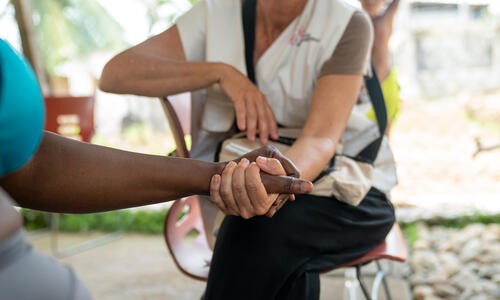
There hasn't been a huge change in the physical effects suffered by the migrants, but we've noticed an increase in the number of people who need our mental health services. Out of a monthly average of 1,500 medical consultations, 150 are for mental healthcare, mostly for patients who suffered violence on the road, more than half of whom have acute stress.
Among these patients are people who have lost a family member on the road, due to an accident, dehydration or because they became separated on the route.
In addition to the brutality and sexual violence, it always has a big impact when you hear about the people killed on the road.
I met a 17-year-old Angolan boy whose family are now scattered: some are already at the Costa Rican border, his father is in Canán Membrillo, his younger brother drowned in a river, and one of his other two brothers died from either from dehydration or starvation, because everything they had with them had been stolen. Stories like these really affect our teams emotionally.
I see the need for these people to be protected and for the creation of safe routes for migrants, whether or not they pass through the Darién Gap.Helmer Charris, MSF field coordinator
These stories also reaffirm how the services MSF provides are needed in this region. Specifically, I see the need for these people to be protected and for the creation of safe routes for migrants, whether or not they pass through the Darién Gap.



